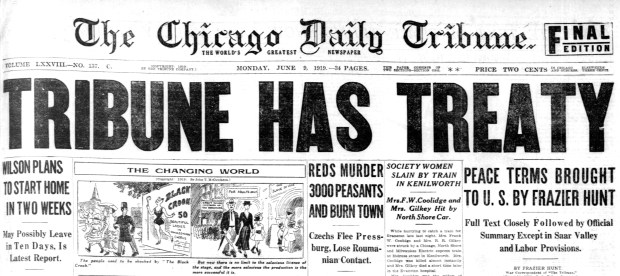Skokie Village Board members introduced an ordinance at the March 4 village board meeting that would limit Airbnb, VRBO and other short-term rentals. The ordinance could restrict the number of rental properties on offer, availability and occupancy, among other considerations.
The village defines short-term rentals as properties occupied for less than 30 days. According to Community Development Department Johanna Nyden, Skokie has about 80 short-term rentals, 45 of which are active. Most members of the Village Board agreed that they would want to see some limits on the rentals but had mixed opinions on what those should be.
Nyden said if the board wanted to establish an ordinance on short-term rentals, it should consider establishing a registration or license and charge fees, require hosts to provide off-street parking, require guests to rent the properties for a minimum of 48 hours, require hosts to give their neighbors notice, require short-term rentals to be spread out by distance, regulate inspections, enforce noise and activity limits, revoke licenses or registrations if they violate local, state or federal law, and in some cases require hosts to stay with guests in the same home.
Trustee Ralph Klein said he would support an ordinance, but only if it were tougher on occupancy and use. He said Airbnbs in Skokie are currently being abused to throw parties that turn neighborhoods into “fraternity row” with disruptive parties that are “neighborhood killers.” He said a former listing offered hourly rentals with nude photography available to renters and that some homes were offering to house too many guests based on their bedrooms available.
Trustee Alison Pure Slovin suggested raising the minimum stay from 48 to 72 hours. Later, she explained that the cost of using an Airbnb for a party house would increase, and participants would think twice before renting.
Pure Slovin said she wanted to ensure that any ordinance the board passes respects a “religious element of Skokie” where people can walk to synagogues in cases where hotels would be too far away.
Trustee Keith Robinson said that requiring a minimum length of stay won’t necessarily weed out customers who wish to throw big parties. Even if the minimum stay was five days, people can still have a big party and charge entrance fees at the door, he said.
The village’s Finance Director, Julian Prendi, answered Klein’s question about short-term rental properties paying hotel taxes to the village. “The short answer is a very small yes and a very large no,” said Prendi. He said Airbnb and Vrbo have not complied with paying their hotel taxes and have been unresponsive to the village. Prendi added that some property owners have been able to collect hotel taxes from the rentals on their own and pay it to the village. He said the new ordinance would enforce the hotel taxes for short-term rentals.
Trustee Khem Khoeun asked Nyden what the enforcement of the ordinance would look like in cases in which short-term rentals did not comply with requirements. Nyden said the village can give a notice of violation, which could lead to a citation. If the short-term rental still does not comply with the ordinance, the village could impose a re-inspection period, which could lead to an adjudication process.
“Our hope is to always be in compliance,” Nyden said. “None of this is to be punitive; it’s always to try to get compliance and help people understand what’s going on.”
Trustee James Johnson said he also supports the ordinance, but some of its language is overly restrictive. He disagreed with Klein’s assessment of short-term rentals as “neighborhood killers,” saying there is a very small number of Airbnbs in Skokie to begin with. He also disapproved of the distancing of short-term rentals, saying that could be inequitable because some blocks in Skokie have multifamily homes and some have single-family homes. He also did not like the requirement for hosts to be present when guests are visiting, for homes in single-family housing areas of zoning.
In response to a question from Trustee Edie Sue Sutker, Nyden said whoever applies for their short-term rental first gets approved, but if someone is within the ordinance’s distance, they would not be approved,
“As everyone can see, this is a complicated issue in a condensed urban area, and one that is diverse in its housing,” said Mayor George Van Dusen. “The purpose this evening was to get some thoughts, some reactions from people, get some ideas… as you can tell from the trustees, it’s something that is of interest to all of us.”




